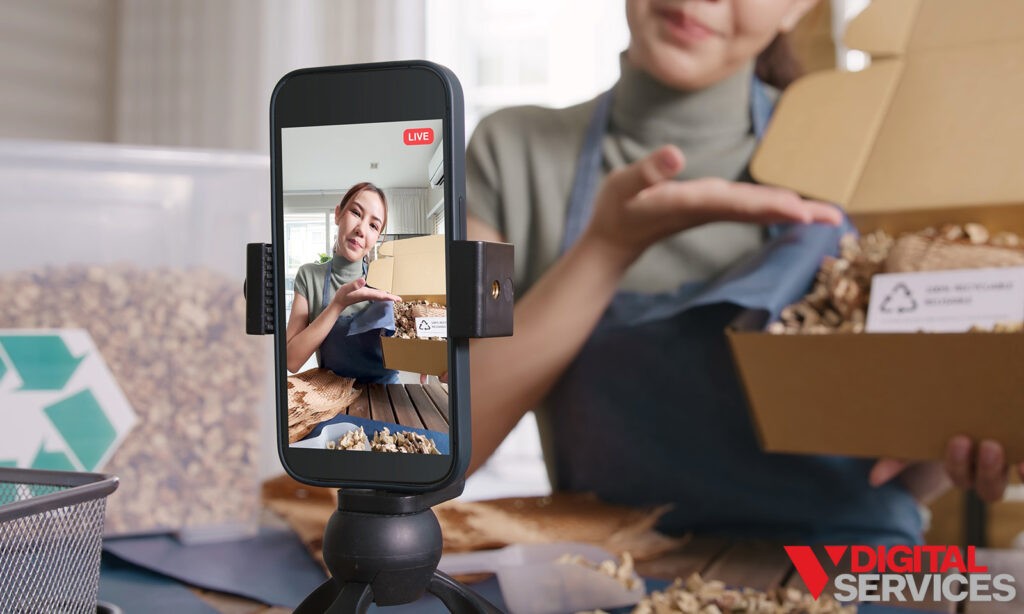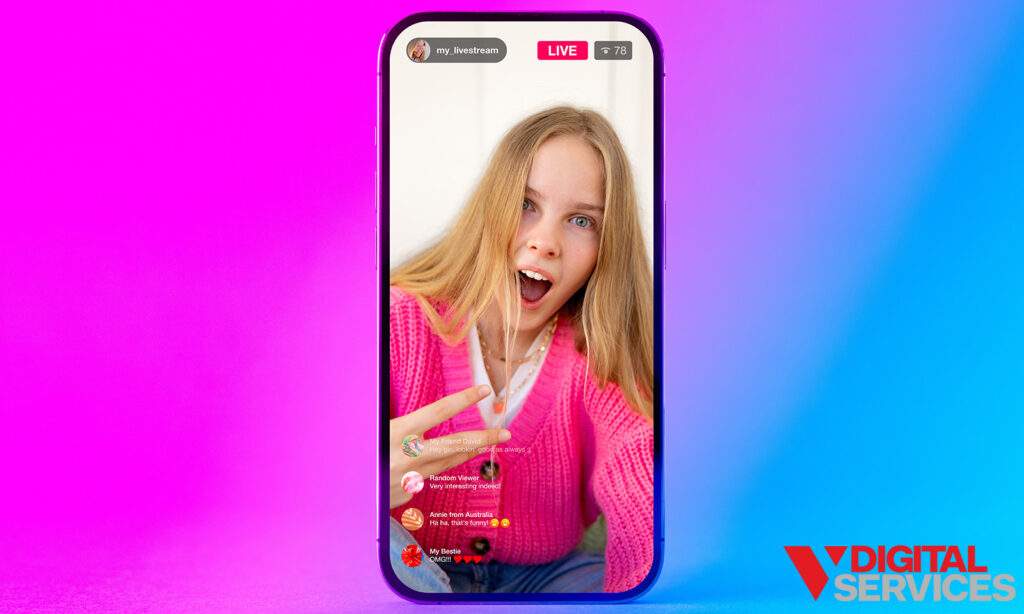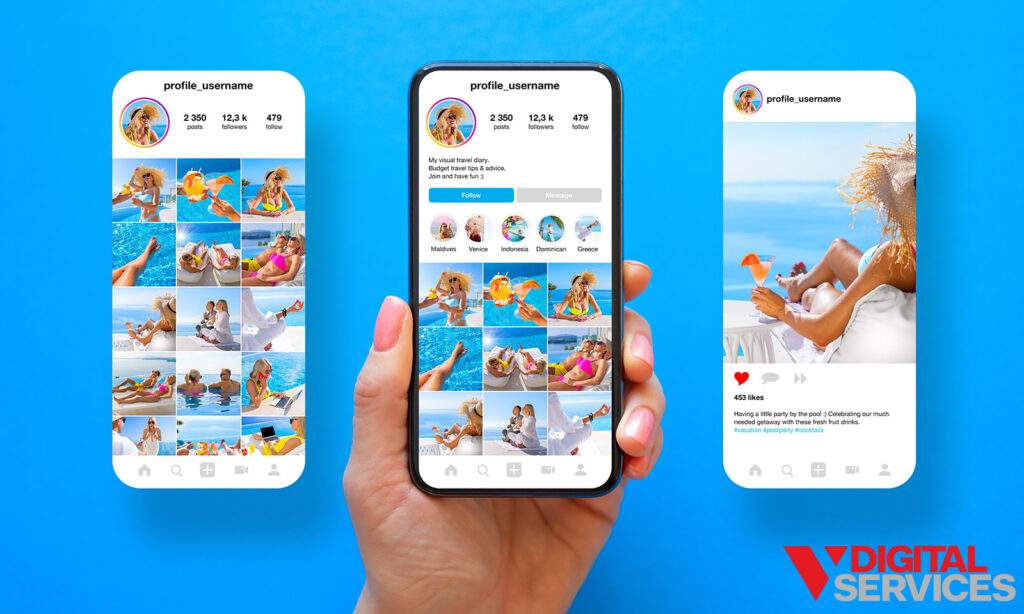What is Influencer Marketing?
Influencer marketing is a modern marketing strategy that leverages individuals who hold influence within a community or niche to drive a brand’s message to a larger audience.
Unlike traditional celebrity endorsements, influencer marketing doesn’t rely on sheer fame. Instead, it capitalizes on the trust and authority that influencers have built with their specific followers. These influencers, through their content on platforms like Instagram, TikTok, YouTube, and blogs, can sway perceptions, introduce brands to their loyal audiences, and inspire action in a way that traditional advertising may struggle with.

Types of Influencer Collaborations
Influencer collaborations come in varied formats, each tailored to meet distinct objectives, including:
- Sponsored Posts: A brand partners with an influencer to create content that promotes a product, service, or message. The brand typically compensates the influencer for this tailored content. Sponsored posts, seamlessly integrating with an influencer’s regular content, offer a non-intrusive way to reach their audience.
- Takeovers: An influencer “takes over” a brand’s social media account for a predetermined time, often a day. This approach brings the influencer’s followers to the brand’s account, fostering interaction and potentially increasing the brand’s follower count.
- Brand Ambassadors: This long-term partnership involves influencers continuously promoting a brand, often in exchange for free products, services, or monetary compensation. As ambassadors, influencers integrate the brand into their everyday content, lending an air of authenticity to the promotion.
- Affiliate Marketing: Influencers promote products or services and earn a commission for each sale made through a link they share. This performance-based model can be lucrative for influencers if their audience aligns well with the product, as they’re directly incentivized by sales.
- Giveaways and Contests: Brands partner with influencers to host contests or giveaways for their audience. These campaigns not only create excitement and engagement but also often lead to a significant boost in followers for both the brand and the influencer.
The Evolution of Influencer Marketing
Influencer marketing is a relatively new term, but the basic concept has been around for quite some time. Before the age of social media, celebrities endorsed products on TV or in magazines. With the rise of platforms like MySpace and then Facebook, everyday individuals began to gain followers and influence. Today, influencers aren’t just Hollywood celebrities; they’re everyday individuals who’ve amassed followers because of their expertise, charisma, or unique content angle.
From the simple sharing of favorite products to well-structured sponsored posts and collaborations, influencer marketing has grown in sophistication. Today’s campaigns are often data-driven, with clear KPIs, leveraging not just mega-celebrities but micro and nano influencers who often boast higher engagement rates.
As consumers grow weary of traditional advertising, turning to ad-blockers and skipping past commercials, the authentic voice of influencers has become an invaluable tool for brands seeking to genuinely connect with their audience.
Benefits of Micro-Influencer Marketing for Small Businesses
In the world of digital marketing, where consumers are frequently bombarded with brand messages, authenticity is the key to breaking through the noise. Micro-influencers, due to their niche and dedicated followings, offer businesses an avenue to convey their messages more genuinely and effectively.
There are so many reasons why, for a small business, influencer marketing can be a game-changer, including:
Authenticity and Trust
For today’s smart and savvy consumers, authenticity is a priceless commodity. Micro-influencers, often hailed as “real people with real opinions,” hold a genuine connection with their followers. Their audiences often view them as friends or peers rather than distant celebrities. Because of this personal connection, their endorsements are perceived as more genuine, making their followers more inclined to consider the products or services they recommend.
Budget-Friendly
While mega-influencers or celebrities can demand enormous fees, micro-influencers, due to their smaller follower count, are considerably more affordable. This cost-effective approach allows small businesses to initiate multiple collaborations, exploring diverse audiences and demographics, all while staying within a manageable budget.
Access to a Targeted Audience
One of the standout advantages of micro-influencers is their niche appeal. Whether it’s vegan recipes, local hiking spots, or handmade crafts, micro-influencers attract a specific subset of followers genuinely interested in their particular focus. Collaborating with these influencers ensures that your marketing efforts directly reach a highly relevant audience.
Higher Engagement Rates
It’s a well-observed phenomenon: as follower counts rise, engagement rates tend to dip. Micro-influencers, with their fewer but more dedicated followers, enjoy high engagement levels. Each post, story, or tweet garners more likes, shares, and comments, guaranteeing that your brand garners prime visibility.
Challenges of Micro-Influencer Marketing
While the appeal of micro-influencer marketing is undeniable, it doesn’t come without its set of challenges. From aligning brand values to tracking the tangible impact, there’s a host of considerations for businesses to navigate. However, if you’re aware of potential hurdles – and ways to tackle them – you can set yourself up for a successful partnership.
Finding the Right Fit
The digital space is teeming with micro-influencers. While choice is good, it can be overwhelming to sift through and identify the perfect influencer whose values, aesthetics, and audience align with your brand. This requires diligent research, understanding influencer content, and evaluating audience interactions.
Negotiating Terms
Unlike mega influencers, who often have agents or set rate cards, micro-influencers might approach collaborations more informally. This can lead to lengthy negotiations, with both parties trying to ascertain fair compensation and deliverables.
Ensuring Authentic Representation
The success of influencer marketing lies in authenticity. However, striking a balance between genuine content and brand promotion can be delicate. There’s the challenge of ensuring influencers don’t deviate from their organic content style, making the promotion feel overly evident or forced.
Tracking ROI
For small businesses, every dollar counts. Evaluating the return on your investment in influencer campaigns, especially when objectives are qualitative, like brand awareness, can be intricate. This necessitates sophisticated tracking methods and, sometimes, patience.
How to Reach Out to Influencers as a Small Business
Initiating a partnership with a micro-influencer is much more than a simple business transaction; it’s the start of a relationship. So, the outreach process should be thoughtful and strategic.
Here are a few key tips for how to effectively connect with and onboard micro-influencers for your brand.
- Personalize Communications: Template messages are easy to spot and quick to dismiss. It’s pivotal to craft personalized outreach messages. Mention their recent post, commend them on a project, or highlight a mutual value, making your outreach stand out.
- Make Sure to Align with Influencer’s Content Style: Before proposing a collaboration, immerse yourself in the influencer’s content. Understand their voice, style, and ethos. When suggesting a campaign, ensure it feels like a natural extension of what they usually do.
- Set Clear Expectations: Ambiguity can lead to confusion or dissatisfaction. Be precise about your goals, whether you’re seeking product reviews, tutorial videos, or shoutouts. Establish clear guidelines about content style, posting schedules, and compensation.
Legalities and Ethics in Influencer Partnerships
As more and more businesses tap into influencer marketing, it’s important to be aware of the legal and ethical complexities involved. Following best practices not only keeps your business out of potential regulatory trouble but it can also ensure a positive professional relationship.
- FTC Guidelines on Disclosure: Any compensated partnership, regardless of its size, must be disclosed. The FTC mandates influencers to clearly indicate collaborations, often by incorporating “#ad” or “#sponsored” in their content.
- Contracts: Never rely on verbal agreements. Draft a detailed contract outlining every aspect of the collaboration, from content deliverables and compensation details to usage rights of created content.
- Transparency: Consumers respect transparency. Beyond just adhering to regulations, being open about partnerships fosters trust and goodwill among audiences.
Tips for Small Business Influencer Marketing
Influencer marketing offers major advantages but also demands careful strategy and execution. Beyond choosing the right influencers, you must also craft the right messages, set mutual expectations, and consistently improve your approach. If you’re getting ready to use influencer marketing to propel your business forward, these tried-and-true tips are the compass you need.
- Understand Your Audience: Before diving into influencer collaborations, ensure you have a comprehensive understanding of your target audience. What platforms do they frequent? Whom do they trust? This ensures you’re targeting the right influencers on the right platforms.
- Quality Over Quantity: Instead of obsessing over follower counts, delve deeper into engagement metrics. An influencer with a smaller, more engaged following often delivers better ROI than one with a large but passive audience.
- Maintain Authenticity: Choose influencers whose personal brand and values align with yours. Forced or inauthentic collaborations are quickly spotted and disregarded by audiences.
- Clear Communication: Clearly convey your expectations, campaign goals, and deliverables to the influencer. The more transparent and open the communication, the smoother the collaboration.
- Use UTM Parameters: To effectively track the success of your influencer campaigns, use UTM parameters in the links you provide to influencers. This allows for easy tracking in analytics tools and gives clear insights into campaign performance.
- Be Open to Creativity: While it’s important to set guidelines, allow influencers some creative freedom. Remember, they know their audience best. Their personal touch can often enhance campaign effectiveness.
- Continuous Evaluation: Influencer marketing is not a “set it and forget it” strategy. Regularly review the performance of your campaigns, gather feedback, and iterate for improved outcomes in future collaborations.
By keeping these tips in mind and being adaptable to the ever-evolving digital landscape, small businesses can harness the power of influencer marketing to build meaningful connections and drive tangible results.
Measuring the Success of Influencer Campaigns
For any type of marketing campaign, you’ll want to know whether it has had a measurable impact on your business success – and influencer partnerships are no different.
There’s a plethora of tools to track campaigns, many of which can save you considerable time, money, and effort if used properly. Platforms like Google Analytics can provide insights into web traffic origins, while Bitly can trace link clicks. For social media, native insights or third-party platforms like Sprout Social can delve deep into engagement metrics.
You’ll want to develop a strategy to analyze engagement, reach, and ROI. Surface metrics like likes and shares provide initial insights, but delving deeper can yield richer insights. Study conversion rates, average order values, or even upticks in brand searches. Evaluate the qualitative aspects, too, like audience sentiment or brand recall.
Of course, no campaign is perfect. Post-campaign, it’s essential to sit back, evaluate, and learn. Study both quantitative metrics and qualitative feedback and ask the influencer for their perspective. Then, use these insights to refine and perfect future campaigns.
Elevate Your Digital Marketing Strategy Starting Now
Influencer marketing is a powerful method for connecting businesses to consumers in an engaging and authentic way. While the spotlight might often shine on celebrity endorsements, the real game-changers for small businesses are the micro-influencers—those passionate individuals whose voice and influence, although limited in reach, resonate deeply within their communities. Through strategic collaborations, understanding of the audience, and continuous refinement, businesses can leverage this dynamic marketing tool to create lasting impressions and foster brand loyalty.
Need expert guidance to navigate the realm of influencer marketing? Or perhaps assistance in blending it seamlessly with other digital strategies? V Digital Services is here to help. With our experience, expertise, and commitment, we’ll tailor a strategy that elevates your brand’s digital presence. Reach out to us today, and let’s embark on a journey to digital success together!
Photo Credits:





 PREVIOUS
PREVIOUS